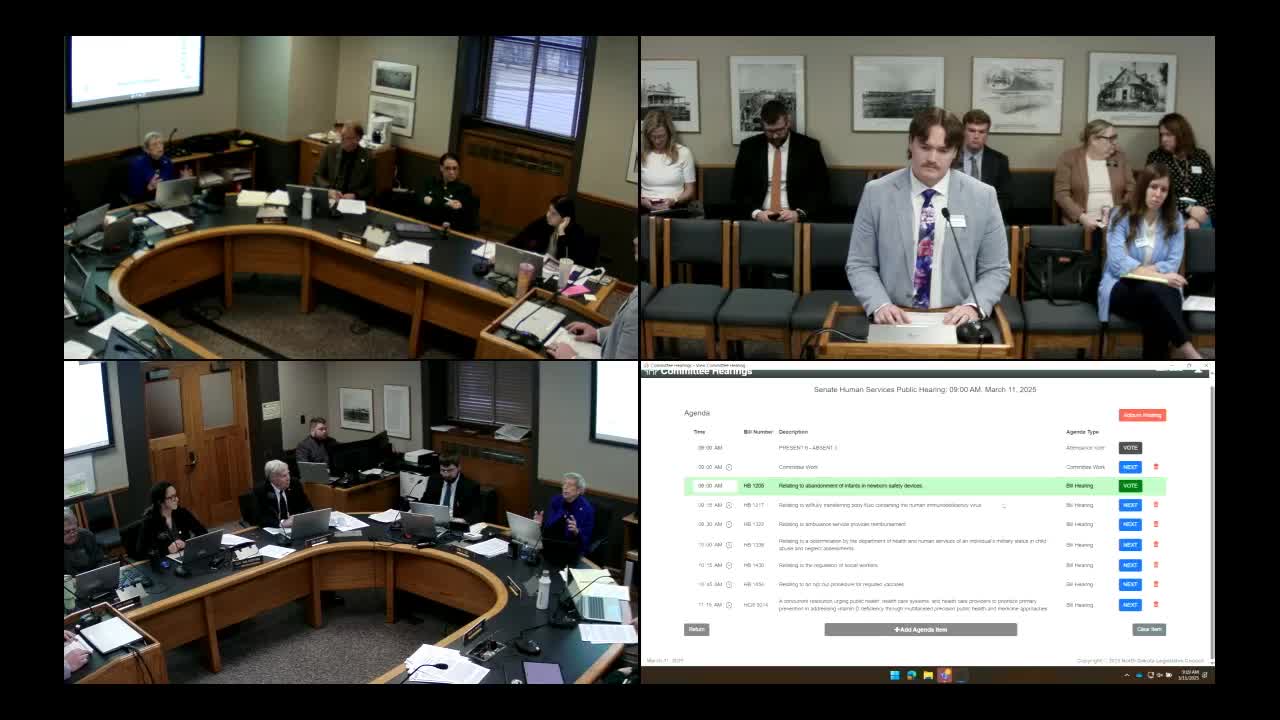Article not found
This article is no longer available. But don't worry—we've gathered other articles that discuss the same topic.
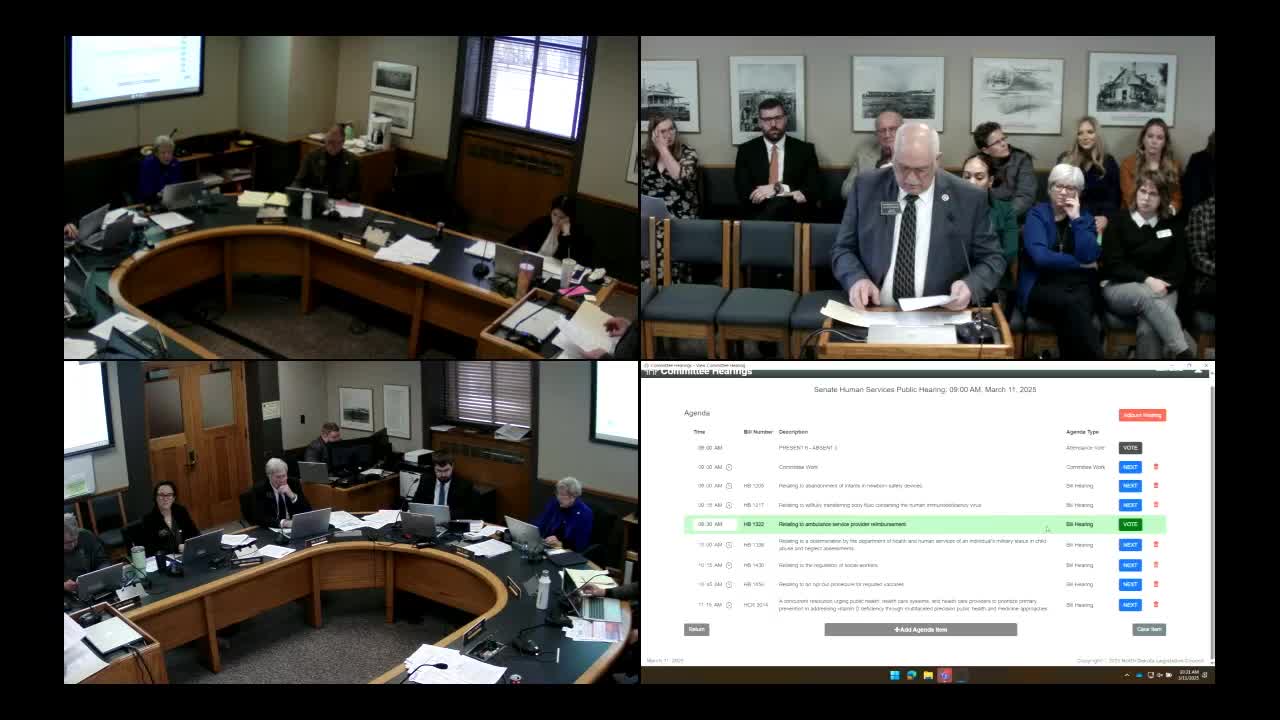
Bill would require zones to notify military family‑advocacy programs of child‑abuse assessments (HB1338)
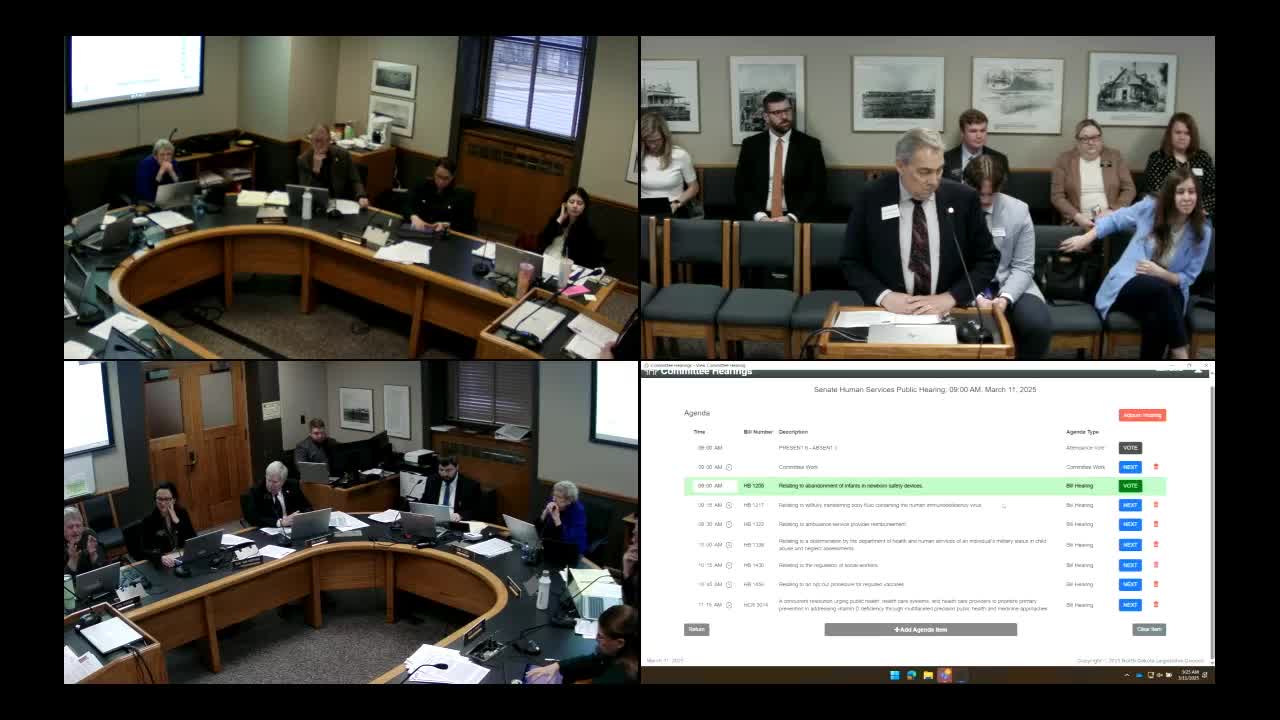
Senate Human Services committee hears testimony on safe-haven baby box pilot (HB1205)
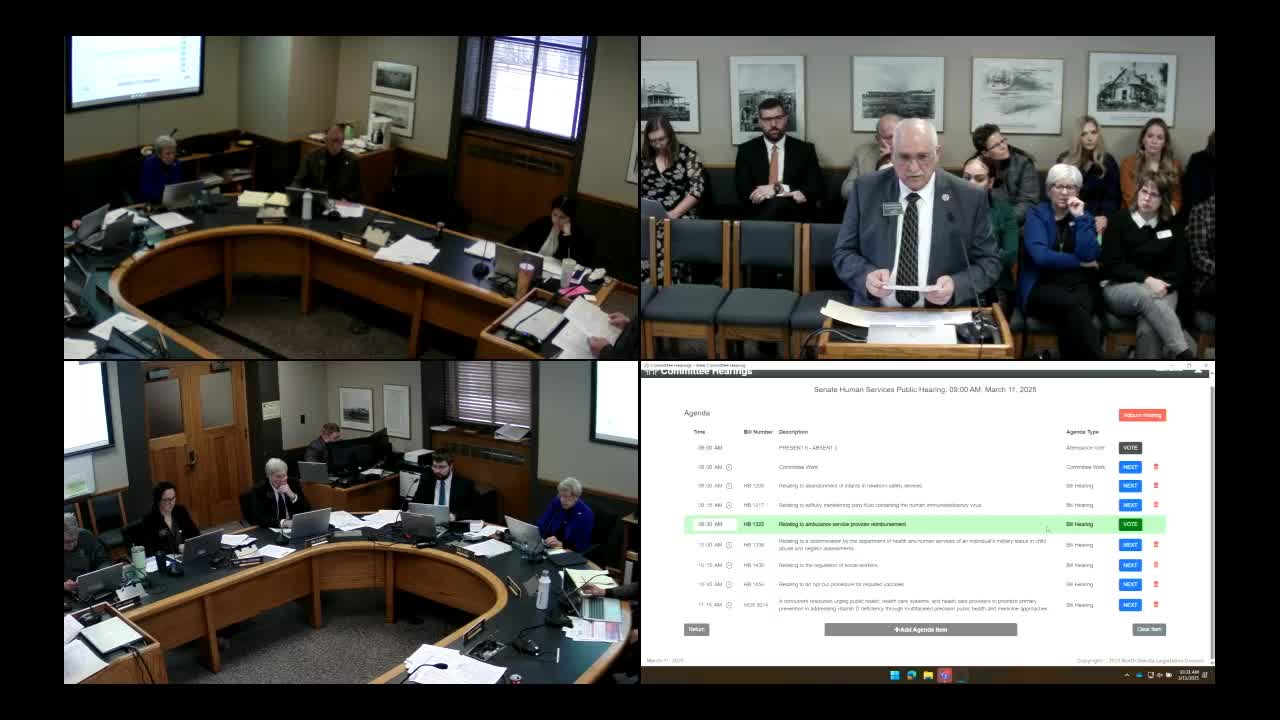
Panel debate as lawmakers weigh amendment to social‑work ethics on treatment of questioning youth (HB1430)
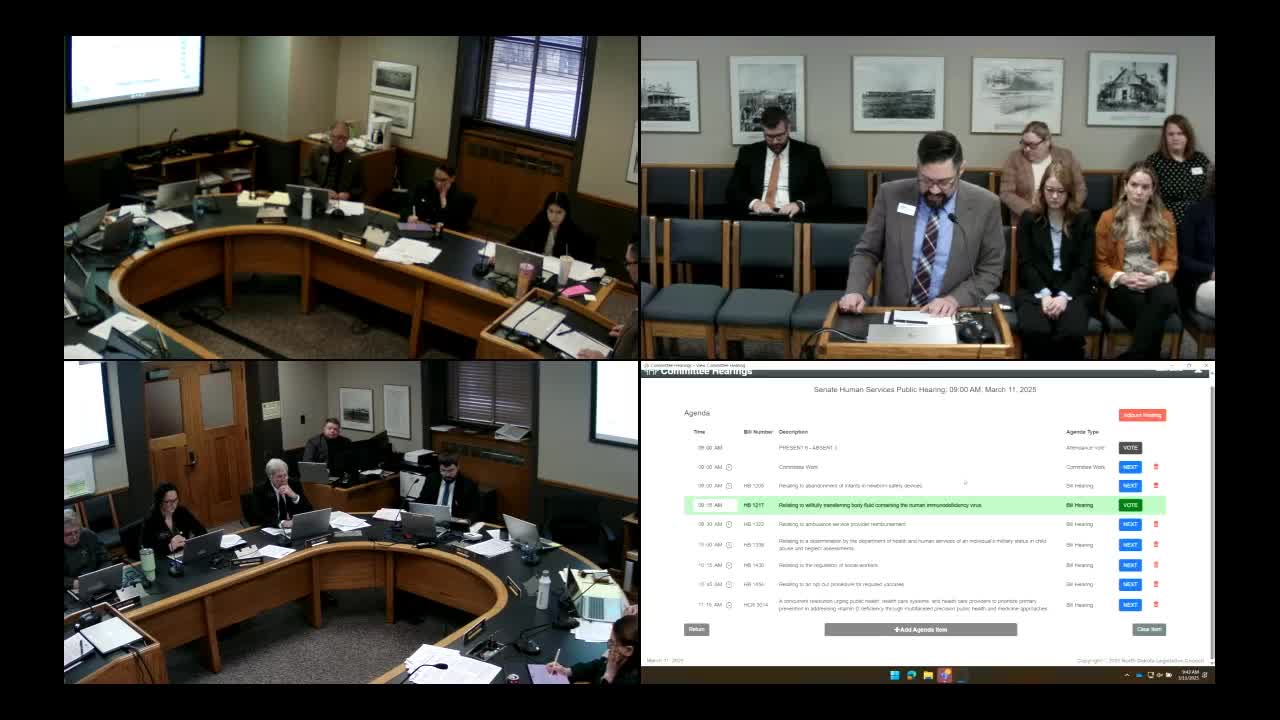
Emergency services, insurers and 9‑1‑1 leaders debate ambulance reimbursement and paging methods (HB1322)
